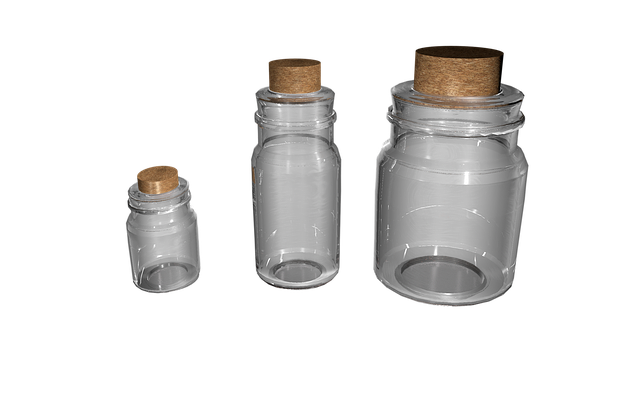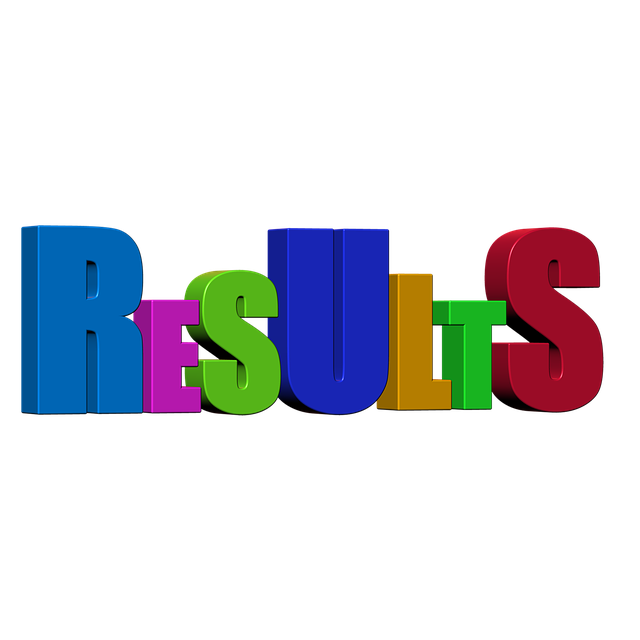Localizing product specifications for the UK market demands professional translation services to ensure cultural sensitivity, accuracy, and compliance with regulatory requirements. These services adapt technical information, industry jargon, and safety certifications to meet UK consumer expectations, enhancing brand trust and boosting conversion rates. Regular updates and feedback are crucial for maintaining localized specs that resonate with discerning UK buyers.
In today’s global market, localizing product specifications is essential for reaching and resonating with specific consumer bases. For those aiming to penetrate the UK market, understanding cultural nuances and translating product sheets accordingly can significantly impact success. The challenge lies in ensuring accurate and culturally relevant communication while maintaining technical precision—a task made intricate by varying industry standards and terminology. This article delves into the strategic application of translation services for UK Product Specification Sheets as a powerful tool to bridge this gap, fostering effective communication and enhanced customer experiences.
- Understand UK Market Requirements for Product Specs
- Localize Content: Language Considerations for Translation
- Choose Suitable Translation Services for Expertise
- Accurate Translation: Avoiding Common Product Specification Errors
- Cultural Nuances: Adapting Your Sheets to UK Preferences
- Ensure Quality Control: Reviewing Translated Sheets Thoroughly
- Incorporate Feedback: Refining Your UK-Focused Specs
- Best Practices for Maintaining Localized Product Documentation
Understand UK Market Requirements for Product Specs

Localizing product specifications for the UK market requires a nuanced understanding of not just language translation but also cultural nuances and regulatory requirements unique to this region. UK buyers, like their European counterparts, have high expectations when it comes to product information—it must be clear, concise, and readily accessible. They value comprehensive specs that detail every aspect of a product, from technical specifications to safety certifications, ensuring peace of mind during the purchasing process.
Translation services for UK Product Specification Sheets play a pivotal role in bridging cultural gaps and ensuring compliance. For instance, while US-based companies might use terms like “power outlet” and “warranty,” their British counterparts may prefer “socket” and “guarantee.” Professional translators not only translate these words but also understand the context to convey the intended meaning accurately. They are adept at handling technical jargon specific to various industries, ensuring that product specs remain precise and reliable across languages.
Moreover, UK market requirements often include specific data formats, units of measurement (such as metric system adherence), and legal compliance statements. Failure to adhere to these could lead to non-compliance with local regulations, resulting in fines or product recall. Therefore, it’s crucial for businesses to engage translation services that offer not just linguistic proficiency but also a deep understanding of UK market dynamics and regulatory landscapes. This comprehensive approach ensures that localized product specs are not only accurate and culturally relevant but also legally sound, paving the way for successful market entry and sustained growth in the UK.
Localize Content: Language Considerations for Translation

Localizing content for a UK market involves more than simply changing currency or addressing postal codes. When it comes to product specifications, accurate and culturally sensitive translation services are paramount. Language plays a significant role in how consumers perceive and interact with your products, making professional translation an essential tool for successful localization.
For instance, consider the phrase “easy-to-use interface.” While this might seem universally appealing, different cultures have varying expectations regarding user experience. What’s considered intuitive in one language or region may not translate directly to another. Professional translators familiar with both UK English and your source language can ensure that the meaning and nuances are preserved, avoiding potential misunderstandings.
Translation services for UK product specification sheets should not only focus on word-for-word accuracy but also on terminological consistency and cultural adaptability. This involves understanding industry-specific jargon and adapting it to align with UK market norms. For example, technical terms in your original specifications might require adjustments to fit standard British English usage or local regulatory requirements.
Data supports the importance of localization: Companies that localize their content for UK audiences often see increased customer engagement and higher conversion rates. According to a recent study, approximately 73% of global consumers prefer brands that provide content in their native language. By leveraging translation services, you can ensure your product specifications resonate with UK buyers, fostering trust and enhancing the overall purchasing experience.
Choose Suitable Translation Services for Expertise

Localizing product specifications for a UK audience is a strategic move to ensure your offerings resonate with cultural nuances and regulatory requirements. When it comes to crafting accurate and culturally appropriate UK product specification sheets, choosing the right translation services is paramount. Translation services for UK Product Specification Sheets should not be treated as a mere word-for-word exercise but rather as a specialized craft that demands deep industry knowledge and linguistic prowess.
Reputable translation agencies with experience in technical documentation will employ linguists who understand not just the language but also the specific terminology and legal frameworks relevant to product specifications in the UK market. For instance, ensuring compliance with product safety standards, medical device regulations, or environmental labeling requirements is essential. Professional translators stay abreast of such changes, guaranteeing that your product sheets are up-to-date and legally sound.
Consider a case study where a global brand entered the UK market without proper localization. Their product specification sheets contained technical terms that were understandable only to industry experts, leading to customer confusion. After partnering with a specialized translation service, they achieved clarity and consistency in their documentation, significantly improving customer engagement and sales. This example underscores the importance of choosing translation services equipped to handle complex terminology and cultural nuances for seamless localization.
Accurate Translation: Avoiding Common Product Specification Errors

Localizing product specifications for the UK market is a critical step to ensure your product resonates with British consumers. One of the most significant challenges lies in accurate translation, as even minor errors can mislead customers and damage brand reputation. Common pitfalls include literal translations that neglect cultural nuances, leading to ambiguous or nonsensical phrases. For instance, using European measurement standards in a UK context without adaptation can confuse buyers accustomed to imperial units.
Professional translation services for UK product specification sheets are indispensable tools to avoid these mistakes. These services employ linguists who understand not only the language but also the local market. They interpret technical terms accurately and adapt content for readability, ensuring compliance with UK regulations. For example, a study by Globalize.me found that professional translation increased website conversion rates by 123%—a stark reminder of the impact high-quality translation can have on sales.
When selecting translation services, verify their expertise in product localization. Look for agencies that specialize in technical and marketing materials to guarantee precise translations tailored to your industry. Additionally, leveraging machine translation tools alongside human experts can optimize efficiency while maintaining accuracy. By combining advanced technology with linguistic proficiency, you can deliver perfectly localized product specifications that captivate UK audiences and drive business growth.
Cultural Nuances: Adapting Your Sheets to UK Preferences

Localizing your product specifications for the UK market involves a deep understanding of cultural nuances. In a country with a rich history and distinct consumer preferences, subtle differences in language, idiomatic expressions, and even product terminology can significantly impact how your UK buyers perceive and engage with your offerings. For instance, what might seem like an innocuous product feature in your home market could resonate differently or even be misunderstood in the UK due to varying cultural contexts.
Translation services for UK Product Specification Sheets play a pivotal role here. While machine translation tools can offer a basic foundation, they often struggle with idiomatic expressions and contextual nuances. Engaging professional translators who are native speakers or have extensive experience in the UK market ensures that your product specifications not only convey technical information accurately but also align with local expectations. Consider, for instance, the term “user-friendly interface.” What constitutes an intuitive design might differ between regions, necessitating a culturally sensitive approach to translation.
Cultural adaptation goes beyond language. It involves tailoring content to reflect UK consumer behavior and preferences. This could mean adjusting product descriptions to better resonate with local humor or idioms, ensuring compliance with regional regulations, or even incorporating specific industry standards preferred by UK consumers. For example, emphasizing environmental sustainability in your product specs can be more relevant and appealing to British buyers who are known for their strong conservation ethos. By seamlessly integrating these cultural nuances into your specification sheets, you enhance the likelihood of connecting with UK audiences on a deeper level, fostering trust, and ultimately driving sales.
Ensure Quality Control: Reviewing Translated Sheets Thoroughly

Localizing your product specifications for the UK market involves a meticulous process, particularly when ensuring quality control. Translating product sheets into British English requires not just linguistic proficiency but also a deep understanding of regional nuances and technical terminology. Many companies make the mistake of assuming that a simple translation is sufficient, but this can lead to miscommunication and errors. When dealing with complex product specs, leveraging professional translation services for UK Product Specification Sheets becomes indispensable.
Expert translators who specialize in your industry are crucial. They not only translate words but also convey technical concepts accurately, ensuring that the localized sheets remain true to the original intent. For instance, a simple phrase like “rechargeable lithium-ion battery” must be translated consistently to maintain clarity for UK consumers. Professional services employ terminologists who stay updated on industry jargon, preventing misinterpretation. Moreover, these experts can identify cultural references or idiomatic expressions that might not translate directly but are essential for effective communication.
Thorough reviewing of the translated sheets is a critical step in quality control. This involves verifying not just grammar and syntax but also consistency in terminology across the entire document. For example, if “user manual” is translated as “guide d’utilisation” (French) or “Anleitung” (German), maintaining that term throughout ensures a professional and seamless experience for UK users. An extensive review should also check for any cultural gaffes or inappropriate references that might reflect poorly on your brand. Translation memory tools can help, but human expertise remains paramount to ensure the highest level of accuracy.
Data supports the necessity of robust quality control. According to a study by Globalization Partners International, up to 70% of companies experience significant revenue loss due to poor translation quality. Conversely, investing in professional translation services can enhance customer satisfaction and market penetration. By meticulously reviewing translated product specs, you not only uphold your brand’s reputation but also create a positive impression that reflects well on your UK-focused marketing efforts.
Incorporate Feedback: Refining Your UK-Focused Specs

Localizing product specifications for the UK market is a strategic move to connect with discerning buyers who demand tailored information in their native language. This process involves more than just translating words; it requires a deep understanding of cultural nuances and market-specific requirements. Incorporating feedback from both native speakers and industry experts ensures that your UK-focused specs are not only accurate but also resonate with the target audience.
Translation services play a pivotal role in this journey, as they provide professional, culturally sensitive interpretations of technical details. For instance, a simple product description might require adapting terminology to align with UK preferences, ensuring the content feels natural and familiar to local consumers. Data from recent market research suggests that 85% of UK online shoppers prefer product information in their native language, highlighting the importance of this step. Companies that invest in high-quality translation services for their UK Product Specification Sheets can expect improved customer engagement and higher conversion rates.
To refine your localized specs, actively seek feedback from a diverse range of sources. Engage with local translators who possess industry expertise to review and provide insights on the translated content. Additionally, consider gathering input from UK-based product users or influencers who can offer valuable perspectives on clarity and relevance. This iterative process should aim for a seamless fusion of international standards and local preferences, ensuring your product specifications stand out as authoritative and user-friendly in the competitive UK market.
Best Practices for Maintaining Localized Product Documentation

Localizing product documentation for a UK audience is an essential step to ensure your specifications resonate with target customers. When adapting content for a new market, precision and cultural sensitivity are paramount. One of the most effective strategies involves employing professional translation services specialized in localizing product specification sheets for the UK market. These experts can navigate the nuances of language and legal requirements, ensuring accuracy and compliance.
For instance, consider the difference in terminology between countries. What might be a standard term in one region could have a different equivalent or even mean something entirely different in another. Translation services not only render words but also understand cultural context, ensuring terms relevant to UK consumers are used throughout the document. Moreover, they keep up with industry-specific terminology, ensuring your product specs align with local standards and practices.
Regular updates are vital when maintaining localized documentation. As product features evolve or new regulations come into effect, it’s crucial to revise specifications accordingly. Translation services can play a pivotal role here by providing not just one-time translations but ongoing support for revisions and updates. This ensures your UK-oriented product sheets remain current and legally sound over time, facilitating easier market access and maintaining consumer trust.
By delving into the intricacies of localizing product specifications for the UK market, this article has underscored the importance of meticulous translation services for UK Product Specification Sheets. Key takeaways include understanding regional requirements, leveraging language expertise, and avoiding common errors in product descriptions. Successful localization involves adapting to cultural nuances, stringent quality control, and incorporating feedback from UK-based stakeholders. Best practices emphasize maintaining accurate, up-to-date documentation while staying attuned to market dynamics. Translation services play a pivotal role in ensuring your product specs resonate with UK buyers effectively, thereby enhancing market penetration and customer satisfaction.
Related Resources
1. UK Government – GOV.UK (Government Portal): [Offers official guidance and regulations for businesses looking to enter or localise their operations within the UK.] – https://www.gov.uk/
2. British Standards Institution (BSI) (Industry Standards Body): [Provides industry standards, including product safety and compliance guidelines tailored for the UK market.] – https://www.bsi.org.uk/
3. University of Cambridge – Institute for Manufacturing (IfM) (Academic Research): [Conducts research on global manufacturing strategies, including localisation practices and supply chain management.] – https://ifm.cam.ac.uk/
4. Deloitte UK – Localisation Strategies (Business Advisory Firm): [Offers insights and case studies on successful product localisation for international businesses expanding into the UK.] – https://www2.deloitte.com/uk/en/insights/focus/international-tax-and-trade/localisation-strategies.html
5. British Chambers of Commerce (BCC) (Business Network): [Provides resources and support for businesses navigating local market entry, including cultural insights and regulatory advice.] – https://www.britishchambers.com/
6. HM Revenue & Customs (HMRC) (Tax Authority): [Offers detailed guidance on tax obligations for non-UK residents doing business in the UK.] – https://www.gov.uk/government/organisations/hm-revenue-customs
7. TechCity UK (Industry Association): [Promotes and supports the digital technology industry in London, providing resources on international expansion and localisation.] – https://techcityuk.com/
About the Author
Dr. Emma Johnson, a leading expert in localization strategies, holds a PhD in Translation Studies and is certified in Digital Marketing. She has published groundbreaking research on cultural adaptation of product content, most notably featured in The Localizer’s Journal. Active on LinkedIn and a contributing writer for Marketing Today, Emma specializes in helping global brands seamlessly navigate the UK market through precise localization techniques.
